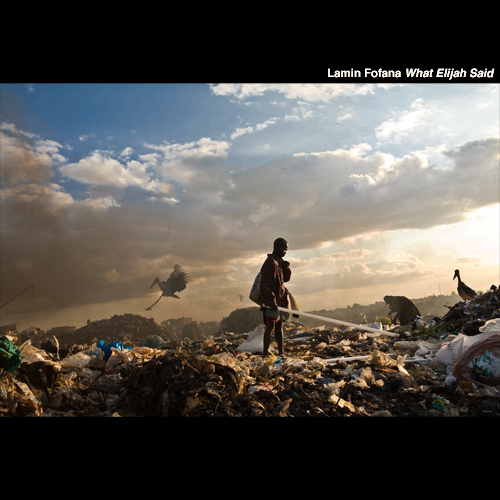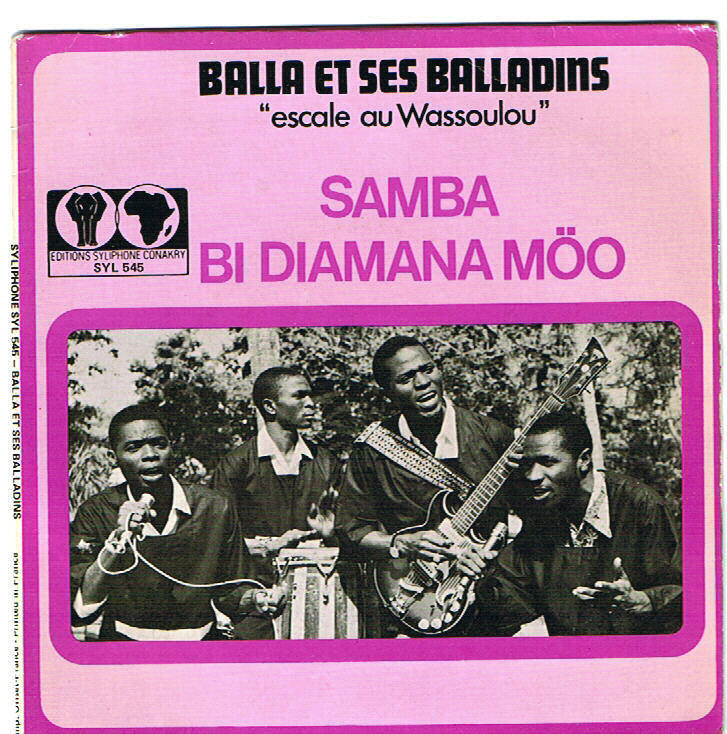
Dutty Artz will release Lamin Fofana‘s debut EP What Elijah Said on September 21. Lamin has been steadily working on beats for the past few years, and he’s about to make a public birth.
When we asked him to describe the music, Lamin sent us this sentence: “Yet, he would refer to the Mother Plane, a mysterious space ship with superior beings, giant black gods or something like that, that patrolled the universe, keeping an eye on the devil and ready to rescue Black Muslims from Armageddon.†Sounds like sci-fi, but turns out it’s from the New York Times 1975 obituary (!) for Nation of Islam founder Elijah Muhammad.
Everything is not what it seems, and this music’s mark of greatness is the way it so effortlessly calls for repeat listens.
What Elijah Said EP:
01 Happy 2010 // Dark Days Are Coming
02 “I will admonish you and give you absolution”
03 What Elijah Said // Eye on the Devil
04 Dance In Yr Blood
Artwork: Boy holding fluorescent bulb, Â photo by Brendan Bannon, Dandora Dumpsite, Nairobi. 8/29/2006. Â Â Hundreds of trash pickers scavenge the dump for food, plastic, glass, and metal. Areas of the dump smolder from a slow burn of plastics and detritus just under the surface. Local activist have attempted to close the site due to pollution concerns.
+

Lamin Fofana was born in the West African country of Guinea. When the political situation got bumpy, he moved to Freetown, Sierra Leone, where his routine involved listening to Goodie Mob and Organized Konfusion as well as attending Quranic schools/mosques. In 1997 Lamin’s family had to flee worsening conditions in Sierra Leone – losing friends, belongings, documents, a home. They spent several days crossing roads and bridges destroyed by rebels to prevent people from escaping. At the end of the year, Fofana found a new home in Harlem, New York, where he lives today.




